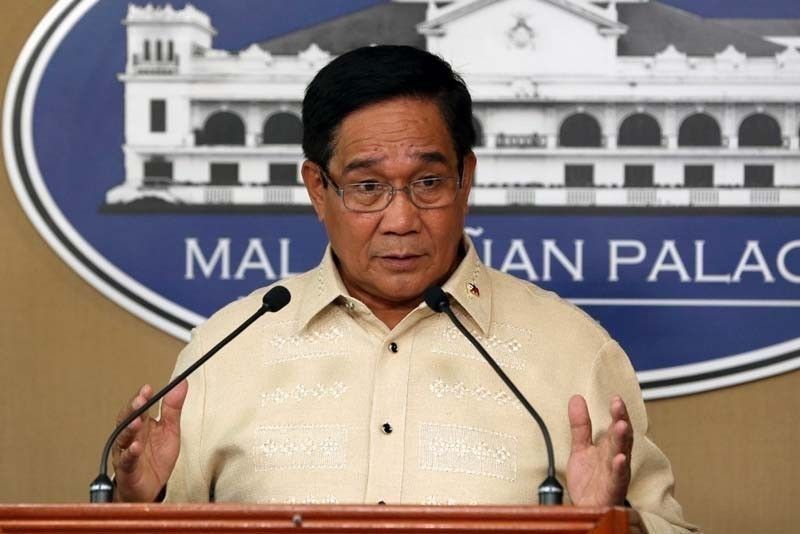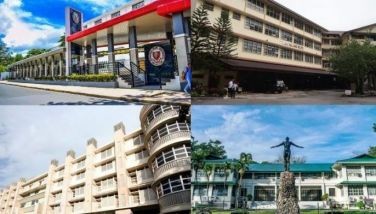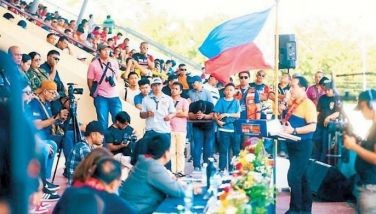CHR: Anti-terror bill should be clear

MANILA, Philippines — The proposed anti-terrorism bill should be clear and not open to misinterpretation to ensure that it would not be used to violate the rights of citizens, according to an official of the Commission on Human Rights.
CHR commissioner Gwendolyn Pimentel-Gana stressed that the commission does not intend to sow dissent when it raised concerns with the version transmitted to President Duterte for signature.
“The CHR is not against coming up with legislation to protect our country because that is actually the obligation of the state to do so. We are against terrorism, too,” Gana said during the online Kapihan sa Manila Bay forum yesterday.
“Not all provisions in the bill are actually objectionable… but there are provisions that we think should not be there or at the very least should be restudied and amended in order to promote and enhance the rights of citizens,” she added.
Among the concerns raised by the commission are the vague and broad definition of terrorism, the provision allowing law enforcers to arrest suspects without a judicial warrant and the expansion of the allowable detention period of up to 24 days.
Gana welcomed the explanation of Sen. Panfilo Lacson, who authored the Senate version adopted by the House of Representatives, that the intent of the law is not to give the anti-terror council the judicial power to authorize the arrest of a suspect.
She stressed, however, that the intent of lawmakers could not be put on the implementing rules and regulations as it is bound by the letter of the law.
“When you make a law, it has to be clear and it is not supposed to be open to misinterpretation or misunderstanding,” the CHR official said, noting that Section 29 of the proposal is titled “detention without judicial warrant of arrest.”
While there is a phrase stating that advocacy, protest, dissent and mass actions are not considered terrorism, Gana noted the succeeding clause specifically identifying only those “not intended to cause death or serious physical harm to a person, to endanger a person’s life or to create a serious risk to public safety” as the exemption.
Gana stressed that they are against terrorism, which is a violation of human rights.
“But it is also our mandate – of the CHR – to raise red flags in the anti-terror law that we think would violate the freedom and rights of our people. The fight against terrorism must not be at the expense or at the sacrifice of our human rights enshrined in our Constitution,” she said.
Lacson dispelled criticisms of the anti-terror bill, citing a disinformation campaign against the proposed measure.
Bill defended
Top government security officials went on the defense yesterday as they pushed for the enactment of the measure that would allow law enforcers to detain suspected terrorists without filing of charges for up to 24 days.
National Security Adviser Hermogenes Esperon Jr., National Intelligence Coordinating Agency director general Alex Paul Monteagudo and Interior Secretary Eduardo Año all threw their support behind the measure.
Speaking at the same virtual forum yesterday, Esperon, Monteagudo and Año underscored the need to protect the general welfare of the Filipino people amid terror attacks.
They also maintained the government is not into red-tagging suspected terrorists allied with the Communist Party of the Philippine and that neither are the concerned security agencies engaged in racial discrimination. – With Christina Mendez, Romina Cabrera, Evelyn Macairan, Paolo RomeroIn a webinar organized by the Management Association of the Philippines yesterday, Carpio said he intends to be one of the petitioners who would raise before the SC the constitutional infirmities of the proposed measure.
“If it is signed into law, I have told my friends I will join the petition… I plan to be a petitioner in the Anti-Terrorism Act,” he said.
The former magistrate would not be able to stand as one of the legal counsels appearing before the SC, however, since he is still covered by the one-year prohibition that began after he retired from the high court on Oct. 26 last year.
Carpio expressed belief that the reason Sens. Panfilo Lacson and Ronald dela Rosa favor detaining suspected terrorists beyond three days is that more time is needed to develop the charges against the suspect.
“I think that is the core of the matter,” Carpio said.
For him, though, there is a way for law enforcers to have time to develop their complaints against suspected terrorists without going against the Constitution.
Carpio had earlier said he is objecting to the bill because of some of its provisions, particularly on unreasonable arrests.
He is also against the ATC that would be comprised of executive officials because they reportedly can order the detention of citizens.
Under the prevailing 1987 Constitution, only a judge can issue a warrant of arrest. Christina Mendez, Romina Cabrera, Evelyn Macairan
- Latest
- Trending
































